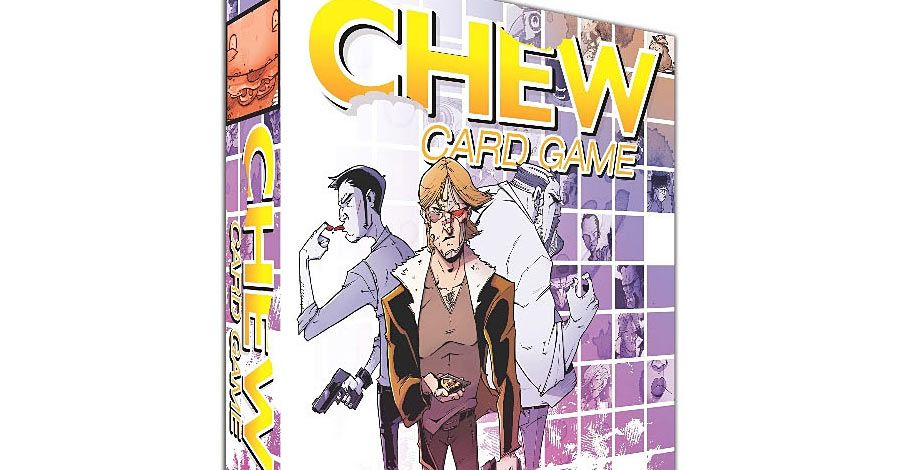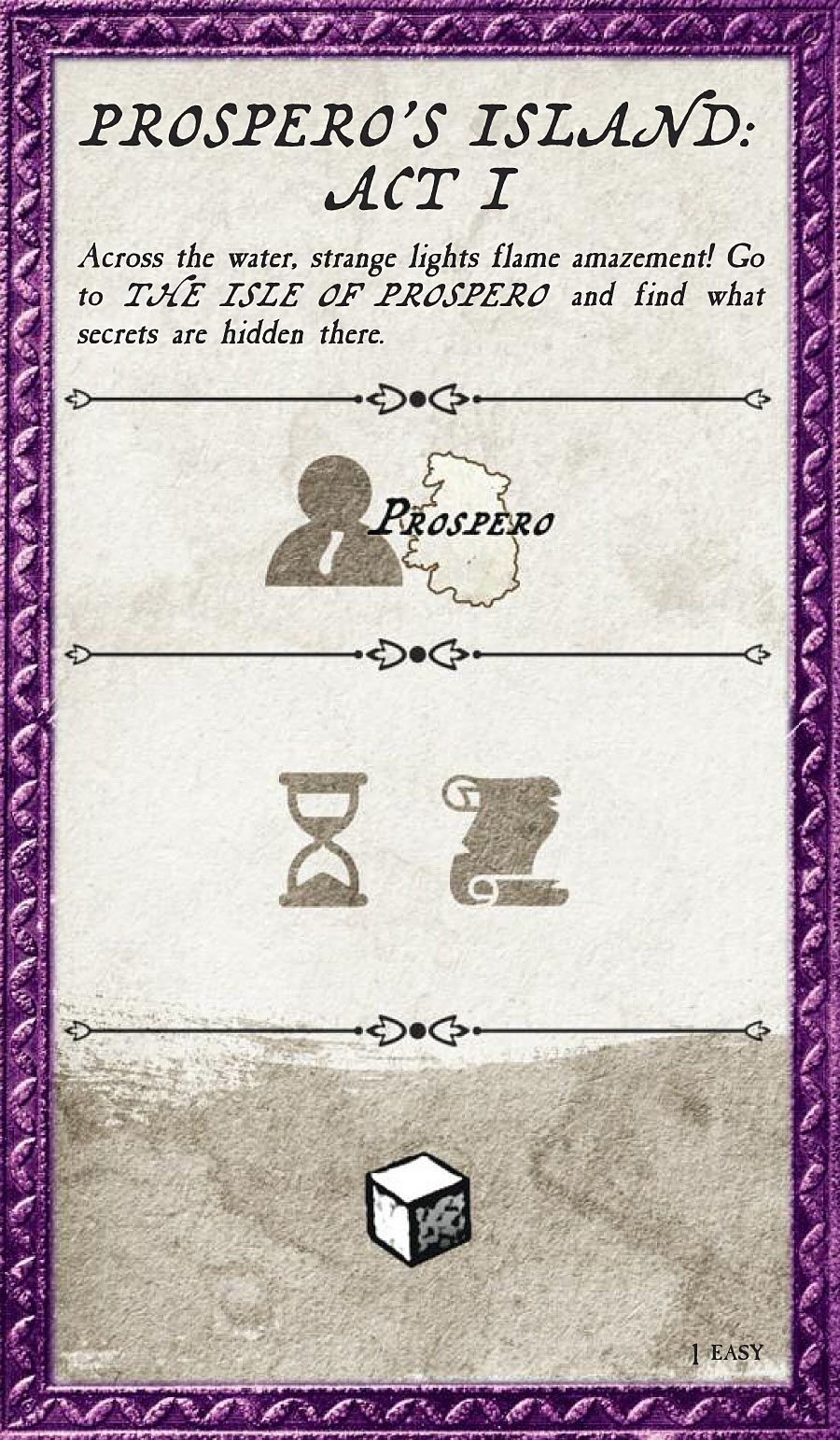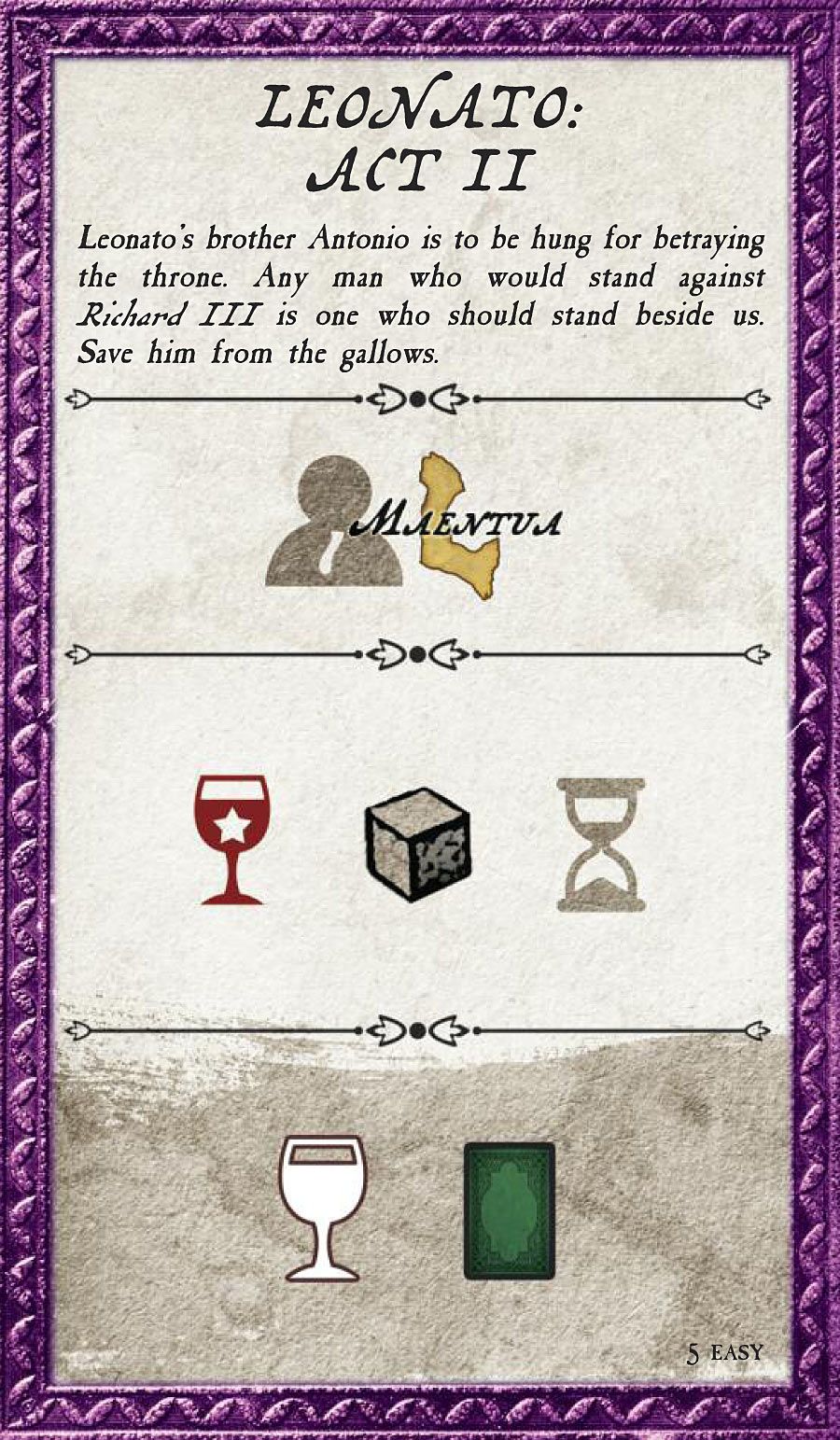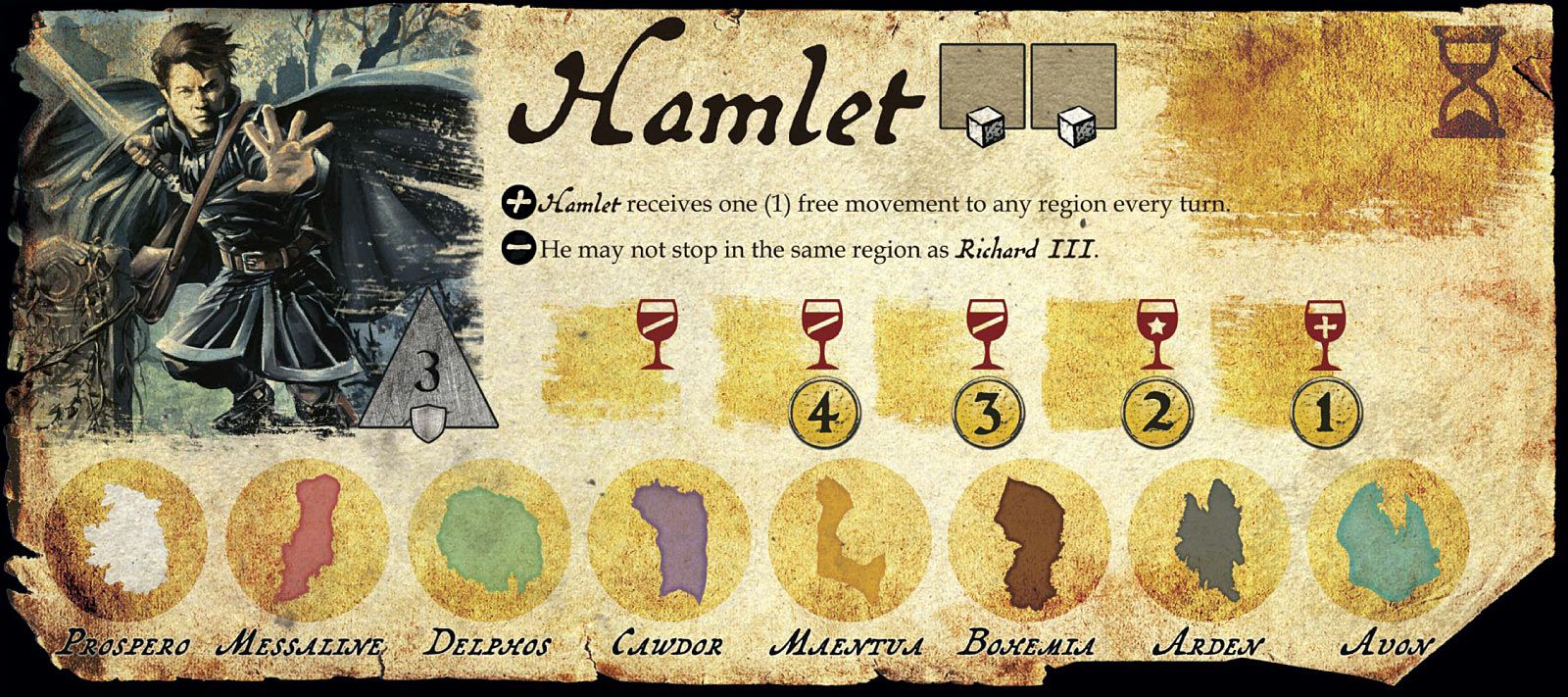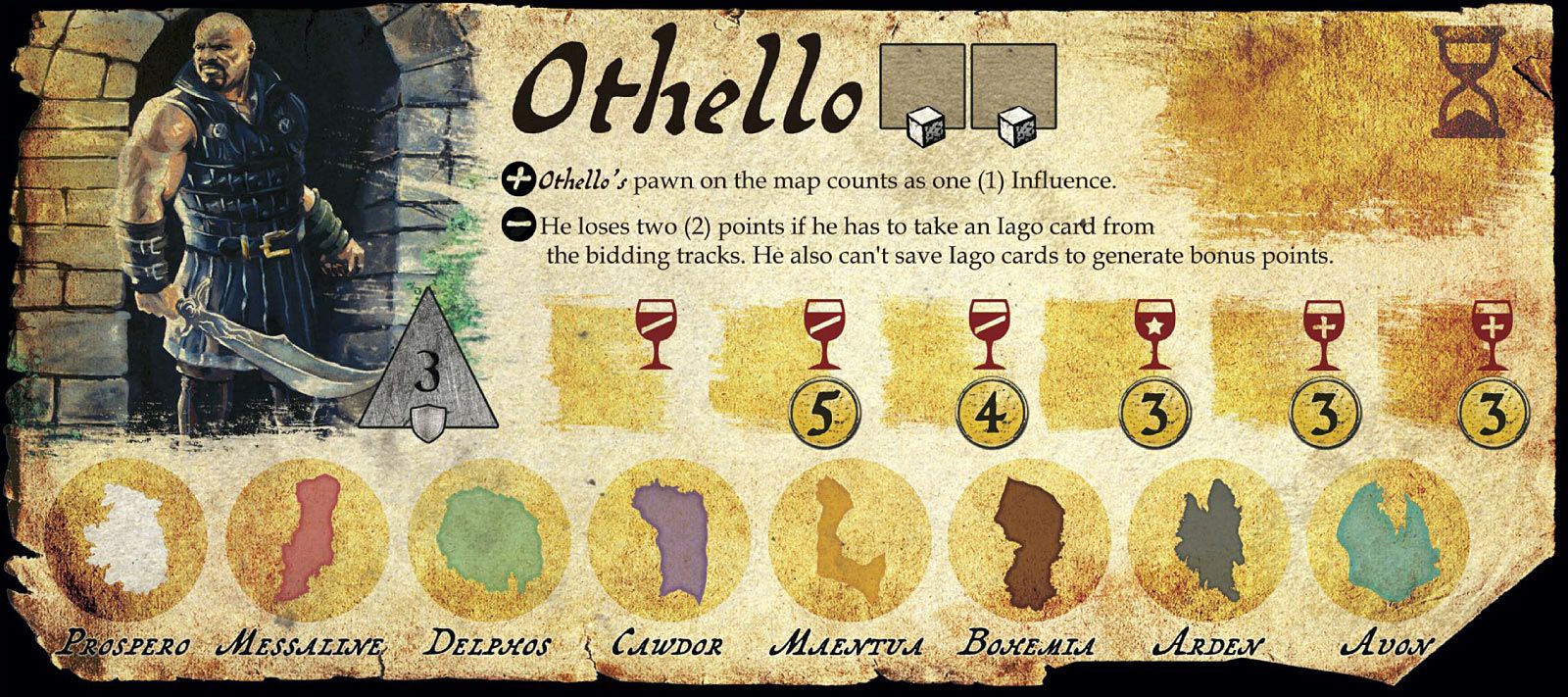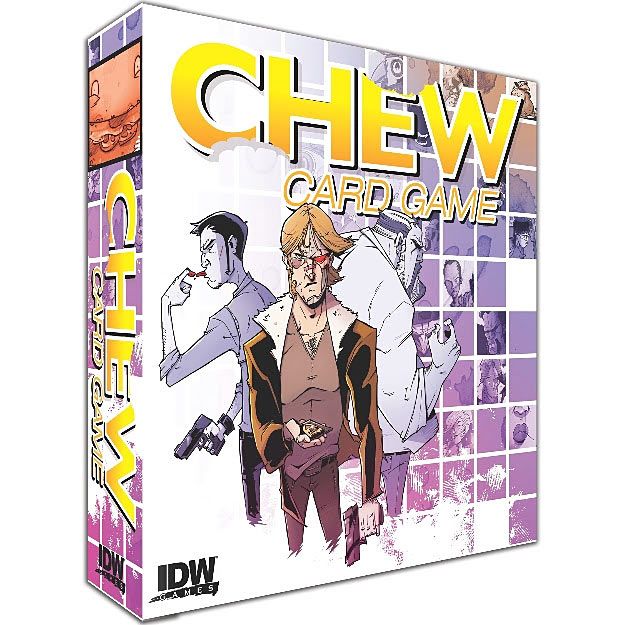IDW Games is in it to win it.
Since IDW announced the formation of its tabletop games division earlier in late 2013, headed up by IDW director of business development Jerry Bennington and product manager Nate Murray, IDW Games has been full steam ahead on its quest to break into the board game market. With Bennington's pedigree, it's no surprise. An alum of Upper Deck's gaming division -- responsible for spearheading the popular "Yu-Gi-Oh" and "Versus" collectible card games -- Bennington understands the challenges that face IDW Games, but knows that tabletop gamers are always hungry for something new that he hopes the division will be able to provide in spades.
"Entering gaming is a big step," Bennington told CBR News. "It takes a lot of organization and effort. I think at this point, IDW entering the space shows exactly how the space has grown and how the breadth of what's possible is expanding. People are ready to move beyond the five basic games they played as a kid, and they're more open to testing the waters with games rich in theme and strategy.
"The experience I gained from developing and managing the Yu-Gi-Oh! and Marvel/DC 'VS' brands for Upper Deck has really opened the possibilities of what a brand can do when integrated with several platforms for fans to enjoy," he continued. "And that's where I see IDW Games making a big impact in the tabletop industry. The integration of content and game play value that delivers an experience exceeding expectations."
That said, it isn't the first time IDW products have seen exposure in the board game space -- Cryptozoic Entertainment published a "Locke & Key"-based game in 2012 -- but it was important to the team at IDW to bring those projects back in house.
"Crypto did a great job with Locke & Key, but we felt that IDW's close relationships with creators through publishing would deliver consistent, high quality gaming experiences for the fans," Bennington said. "Our goals for the Games division are ambitious and the only way to efficiently and effectively integrate stories between publishing and gaming would be to bring it under one roof."
Board games might not seem like much of a big business to the layman, but there's definitely a huge audience out there. The most recent GenCon -- one of the biggest gaming conventions in the United States -- reported 49,000 attendees over its four-day celebration, while the much larger Internationale Spieltage SPIEL in Germany (better known as the Essen game fair, and akin to the Comic-Con International of board games) reported 154,000 non-unique attendees at last count. (By comparison, Comic-Con International 2013 reported 130,000 unique attendees) The consumer base is definitely out there, and for IDW Games, it's a matter of determining how best to reach and expand their target audience. A big part of that plan was bringing in gaming industry veteran and Pandasaurus Games president/founder Nathan McNair.
"When I joined IDW a few years ago I noticed a lot of similarities in organizational structure and management that would work well for a gaming company to get off the ground quickly," Bennington said."By chance, Nathan McNair from Pandasaurus Games contacted me about a year ago with an interest in jointly developing a few games and we quickly penciled out a plan for 2014 which included publishing Pandasaurus' titles as well as discovering other games that deserve a wider audience. This summer our first title will be out, and from there we will have another 4-6 games out before Christmas. Things have moved quickly, to say the least."
"There's a really smart team there that has a lot of history in tabletop gaming, which is going to be hugely advantageous, both for them and for us," McNair said, making reference to Bennington's experience at Upper Deck. "It's actually kind of odd, in a way, that there's a comic book company that also happens to have so much experience in tabletop. I think there's a real opportunity here for really well-made games that the creative side of the storytelling can be involved in, instead of the normal hand-off process where you've got a story and people like the story and you hand it off and it becomes a Monopoly clone; or something that has almost nothing to do with the world. It's a very exciting opportunity to integrate the storytelling with the game design."
Indeed, integrating storytelling with game design seemed to be exactly where the division was headed with its announced first projects: tabletop games based on "The X-Files" and "30 Days of Night" -- but its debut game will be "Kill Shakespeare."
First published in 2010 and created by Anthony Del Col, Conor McCreery and artist Andy Belanger, "Kill Shakespeare" brings all the characters from William Shakespeare's many plays into a single world, casting the Bard as a reclusive wizard with a special ability to assist in a battle against evil forces led by Richard III, Lady Macbeth and Iago. Alliances are forged, trust gained and broken -- a perfect setting for a multiplayer board game.
RELATED: IDW Games Signs J.K. Woodward, Dave Dorman for "Kill Shakespeare" Card Game
Part of the importance for Del Col and McCreery -- "Axis and Allies" and "Settlers of Catan" fans as well as Shakespeare experts -- during the initial discussions for the game's development was that it stay true to "Kill Shakespeare" as an experience.
"It was important you could play as these characters and there had to be an opportunity of different narratives to come out of the game, which is one of the reasons why it's a semi co-op game," McCreery said. "It's going to start off with everyone on the same side, and as the game goes on, everyone has to choose when they're going to start playing for themselves instead of the good of the whole.
"Anthony likes to joke, 'Oh, great! The more backstabbing you have, the more Shakespearean it is,'" he continued, laughing. "That was one of the things we impressed on IDW. If we can have a game where characters can change their goals and change the way they play [as the game goes on], that's very consistent for 'Kill Shakespeare.'"
"From day #1 with 'Kill Shakespeare,' it's been, 'Some people will read comics but they won't play board games' -- whatever we can do to get people excited about Shakespeare and his characters would be ideal," said Del Col. "In terms of telling a story, the great thing about developing the board game is that it helped us open up the world even more. What does the land look like? What are the names of different regions? We've been involved in that, and that's allowed us to further explore this 'Kill Shakespeare' universe."
Part of the launch of IDW's "Kill Shakespeare" game was a Kickstarter campaign, designed to help determine what kind of extras were appealing to fans and other tabletop gamers. It was an intriguing move by the imprint, especially considering the density of board game products on the crowd funding platform. (There are around 4,000 tabletop gaming projects in various states of completion on Kickstarter.)
"IDW had committed to publishing the game before the Kickstarter came down," McCreery told CBR, noting that the imprint wanted to reach out to the Kickstarter community for two main reasons: finding out what the fans wanted from a game like "Kill Shakespeare" and another very important reason: "Kickstarter's really become the way that you get a title out there. As big as IDW is, compared to the Hasbros out there, they're minnows. There's only so much marketing muscle that can get 'Kill Shakespeare' into the eyes of the board game community. Kickstarter has been such a useful way of doing that. ... Hardcore gamers aren't looking at Toys R Us, or even their local game shop to find the newest game, they're trying to find a cool title that a publisher might not want to take on because it's too innovative. IDW said, 'Hey, let's put this title out there, let's reach out to that community and let's let them choose by how they support the game, what's going to be the peripheral.'"
While "Kill Shakespeare" represented a great opportunity for IDW Games to use Kickstarter as a tool -- both for promotion and to determine what interested its target audience -- it's not necessarily right for every game they'll publish.
"We're going to do it for titles that make sense, titles we can expand if Kickstarter wants it expanded," Murray said. "That's what the Kickstarter was about. It was our first game, so we tested what people wanted to see more of in a game. We tested some stretch goals -- some were hot, some weren't, and we learned. Not every game we published will go to Kickstarter."
Basing a game on one of IDW's existing comic book properties certainly makes sense for the publisher, and Murray continued, saying that there are big plans in store for those looking for a little more integrated cross-pollination in terms of story.
"We have big dreams for that and really want to work to a point where the comics can weave into the board games and the board games can go back into the comics," said Murray. "That's important to us. Everybody who is receiving 'Kill Shakespeare,' they're going to open up the box and there's going to be issue #1 there in that box. You can finish playing the game and if you can't get four friends together, you can spend some time alone reading the series. It's very important to us and something we're going to be looking at heavily."
"I'm personally excited to give fans an opportunity to spend more time in their favorite worlds," said Bennington. "That's the kind of stuff we'll be doing. Leading in and out of comics with great, heavily thematic game content."
The game is set to release this summer -- but it's not the only game the company has on the way in 2014.
While "Kill Shakespeare" is an exciting prospect for tabletop gamers, and the Kickstarter campaign did a lot to get the word out, it wasn't until IDW Games announced its acquisition of the English language publishing rights to "Machi Koro" that gaming fans realized just how serious the new division was about entering the space.
Every year, an incredible amount of games are showcased at the SPIEL game fair in Essen, but one usually stands out above the rest. In 2013, it was "Machi Koro." Designed by Masao Suganuma, "Machi Koro" represented the holy grail of imported games for publishers. Only a handful of English copies were available at the show, and the few that were given out made an incredible impression. Taking the role of a mayor building a city, players roll dice to help generate income to build more buildings and eventually win the game. It's a delightfully simple concept, executed with a simple-to-understand game design.
Understandably, IDW Games wanted it.
"It was very competitive," McNair said. "There were a lot of companies that were really interested in this game. It's a great game and it was a lot of work. It was a very long process to get the English language rights to the game -- months -- and I definitely know a couple of the people who were going after it as well."
"'Machi Koro' is a game that I think is really, really special," he continued. "It's got a lot of buzz, but when you play it, it's just fun. That's the trick. If you can sit down and hand a game to someone that doesn't play games and they have fun, you've got a winner. I think that's the key."
IDW Games' approach to publishing and marketing its release in Summer 2014 could also be seen as a sign of its commitment to the game as a whole. The publisher has already announced a unique preorder promotional card as well as an expansion in the works to add a fifth player to the game. In fact, "Machi Koro" is an example of Japanese micro gaming that's come to prominence in recent years -- and an example of an incredibly popular game that uses simplicity as its main tool, which McNair says somewhat mirrors where Eurogames were 10 to 15 years ago.
"I think it was a 5000 Yen challenge where a group of designers decided to make a bunch of games that could be bought for under 5000 yen on a convention floor," said McNair. "That's going to limit the number of components you have -- you can't sell a giant game for that much. They're distilling down core elements into fun experiences that, while simple, don't lack choice. I think that's fascinating. I think that's something that appeals to people everywhere. 'Hey, do you want to have fun in under 20 minutes and without having to get a headache and figure out this really complicated game?' I think that appeals to a lot of people -- people who don't play games."
Indeed, IDW's willingness and tenacity to jump on the "Machi Koro" publishing rights is a fine example of how McNair and Pandasaurus are right on top of the emerging trends in the board game industry, many of which have found their way to the United States from Europe.
"A lot of the biggest designers come out of Europe, a lot of the top games come out of Europe, and what's coming out of there is huge," said McNair. "It's really, really important to the US industry and the industry worldwide, and there's a lot of really talented designers that put out really good games. Work replacement games were starting to become a big deal -- stuff like 'Agricola' -- and that's continued to be the case. Now, deck building was a huge implementation after 'Dominion' came out. One trend that I think is fascinating is how small the world has become. I think you're starting to see a lot of European designs, which used to be non-thematic games, where you're being told you're trading stuff in Europe, but you're kind of just playing a spreadsheet with a couple of pictures on it. Whereas, American games were all about theme -- you might be rolling a million dice and the game wouldn't be well-designed, but it was cool to do and fun. I think what you're seeing is that everyone is coming to the middle."
For an American publisher, like IDW Games, it really does seem like it's all about finding that happy medium between theme and mechanics, and while many of the IDW-based games may have theme, it's equally important -- both to IDW and Pandasaurus -- that any game bearing the IDW Games label defies the stigma normally associated with licensed products, especially when it comes to games.
"If you look at the licenses on the publishing side, you'll see we take great care with all the choices we make," Murray said. "That's going to be the same with our licensed games. With 'The X-Files,' Kevin Wilson is a guy who was important on 'Descent' and 'Arkham Horror.' It's a solid game, really fun -- and the difference between it and the titles I mentioned, is that it's a 60-90 minute game. It's like playing an episode or playing a film. You can learn it pretty quickly. It's got that perfect balance of pulling you in and giving you enough strategy but not overwhelming you. Just like 'The X-Files,' we unfold the mystery a little bit at a time."
Hardcore tabletop fans will recognize Kevin Wilson's name -- he contributed heavily to the success of Fantasy Flight's 2005 edition of "Arkham Horror," which tasked players with surviving a trip through to an otherworldly plane in order to stop an invasion by a powerful alien (often Lovecraft-inspired) being. It's understandable why he'd be an excellent choice to explore the world of "The X-Files."
"Kevin Wilson [is] a really prolific designer and has done tons of great games over the last decade and is one of my favorite designers; he has a couple of different genres of games that he works in and does really well, and one of them is a mysterious deduction game where you're trying to unravel layers of a mystery," McNair said. "He's also really good at overlord games -- if you've ever played a pen-and-paper RPG, it's not entirely dissimilar to a dungeon master sitting across the table playing against the rest of the players. That to me just made sense for 'The X-Files.'"
Forming a Games division definitely gives IDW greater control over the final product, and while McNair admits that there are certainly companies that do an excellent job with licensed products, there are many good reasons to bring development in-house. And that may actually be the key to IDW Games' plan to break into the space: courting developers who have already made a splash in the space to create a product that isn't merely good, but actively great, which will protect consumers and retailers alike.
"If you're somebody that enjoys tabletop games -- casual or really hardcore -- your money only goes so far. If you can afford to buy a game, you have to make sure the person's going to be happy with what they bought, that they're going to be happy with what they bought," said McNair. "You have to make sure for the store owners that the games are good because they're going to be purchasing these games and they're going to be selling these games to their customers. For their protection, you have to make sure it's a good game, that it's a high quality game, that it's a fun game. You need to do that for the distributors that are telling stores that these games are good, and you have to do it for yourself. It's just a matter of consistency and making sure that you're thinking of everyone all the way to the end customer and up. Our interests are all aligned -- we all want a good game out of this! We want to make a good game, the stores want to sell a good game, and people want to buy a good game. I know it sounds kind of easy and obvious, but I think it's that simple."
IDW Games hopes to rise to the ranks of gaming companies respected and revered by the tabletop community -- companies like "Ticket to Ride" publisher Days of Wonder and "Arkham Horror's" Fantasy Flight -- and ensure that when a game is published, it's one that all tabletop fans need to have in their library, regardless of license.
It's a high goal to strive for, and it's an easy thing to say. Certainly, there's an uphill battle for shelf space in board game shops, and it's a far more crowded space than comics. Board Game Geek, the biggest online database and resource for tabletop games, lists over 70,000 games by more than 14,000 publishers. It's an incredibly packed marketplace, but IDW is being very careful about the products they release, and certainly Bennington and Murray's experience developing the IDW Limited line will help products stand out on shelves.
"We want to do the absolute, top-of-the-line product that we can -- and that's definitely what Limited is. It's definitely my belief that the 'Locke & Key, Volume 2: Head Games' that we did is the single best collectible comic ever made, from the tray casing to the paper choices to the secret compartment and the actual 'Head Games' key in that book, nothing like it has ever been attempted or executed to that level," said Murray. "I think that's really important to us and people are going to see that with the first game we put out, 'Kill Shakespeare.' Glen Fabry did the cover art for that, which is a huge get. We had J.K. Woodward do something like 40 original paintings at 11x9 and we're shrinking these down to 2.5x3.5 cards. We didn't have to do that, but we did, and that's going to be what you see with IDW Games: above and beyond on all fronts. We're targeting the biggest game designers, the best artists and putting them together on games that we love. We're going after the licenses we love, too -- not just IDW licenses."
It looks like other creators are taking notice of IDW Games' commitment to bringing quality games to shelves as well -- it was recently announced that the company plans a game based on John Layman and Rob Guillory's Image Comics series "Chew."
"I know IDW. I trust and like IDW," said Layman, who launched "Mars Attacks for the publisher. "I've worked with them before, and it's always been a great experience. The people who run IDW and work there are honorable and enthusiastic, and they do super high-quality stuff. It was a bit of a no-brainer. ... I tried creating a 'Chew' game myself, and I think it's got the seeds of a great game there, but I don't know game math or design or how to balance it. I need somebody who understands game design to fine tune it, and that's where IDW Games comes in."
Of course, comic-based properties aren't the only games that IDW Games plans to publish -- a new edition of Pandasaurus' long out-of-print game "Tammany Hall" is on the way as well, with more original content possible -- and that's just the tip of the iceberg.
"There's a lot of cool stuff that's coming up that I think is really going to show why this was such a good idea to do an in-house imprint," said McNair. "A lot of it is going to be you can sit down and get everyone at IDW -- whether they're on the game side or not -- around the same table to really make sure that things work well together, that there's a cohesiveness to what's going on and a consistency between the world of the comics and the world of the games."
Murray emphasized that IDW Games "isn't a test" for the publisher, and that the team is "100% dedicated" to being one of the top publishers in a very competitive marketplace.
"We look up to the brands like Fantasy Flight and Days of Wonder and we plan to be among them," he said. "When you talk about games, that's where we want to be with people we hold in the highest regard. There's a lot of amazing things going on in tabletop gaming right now, and we want to be part of that."
As Bennington says, the division is "definitely all-in."
"'Machi Koro' was the first of what we hope will be a series of announcements that will excite gamers across the globe," he said. "Without revealing our full blueprints, I will say in five years we plan to be on similar release schedules and visibility as some of the first names that come out of your mouth when you talk big-box gaming."
Stay tuned to CBR News for more on the future of IDW Games.

